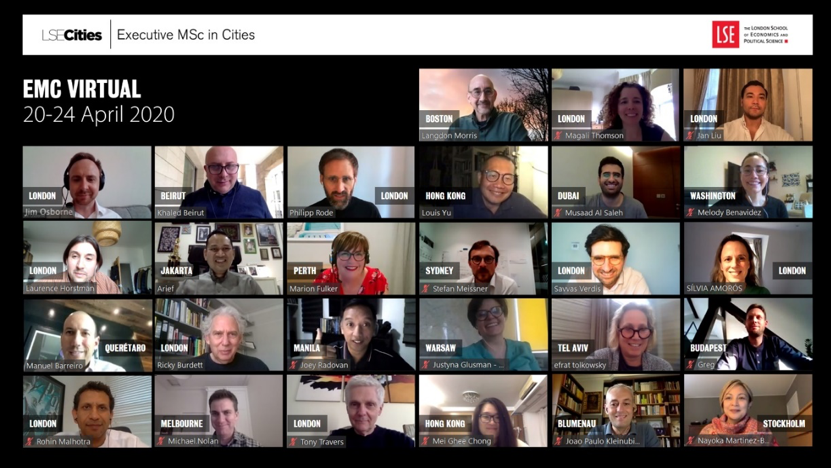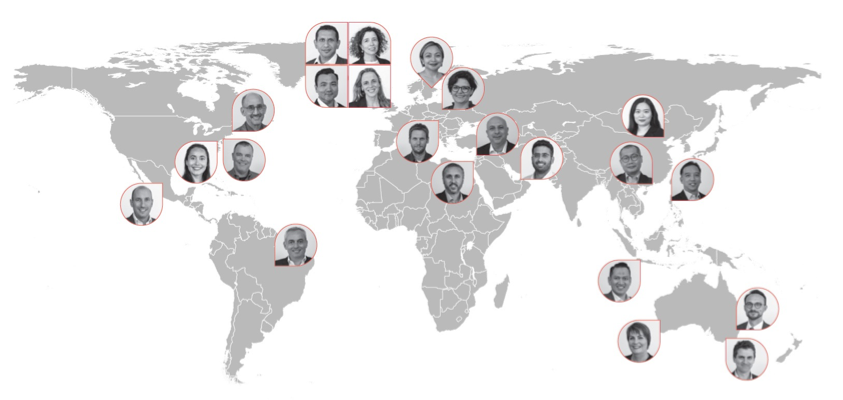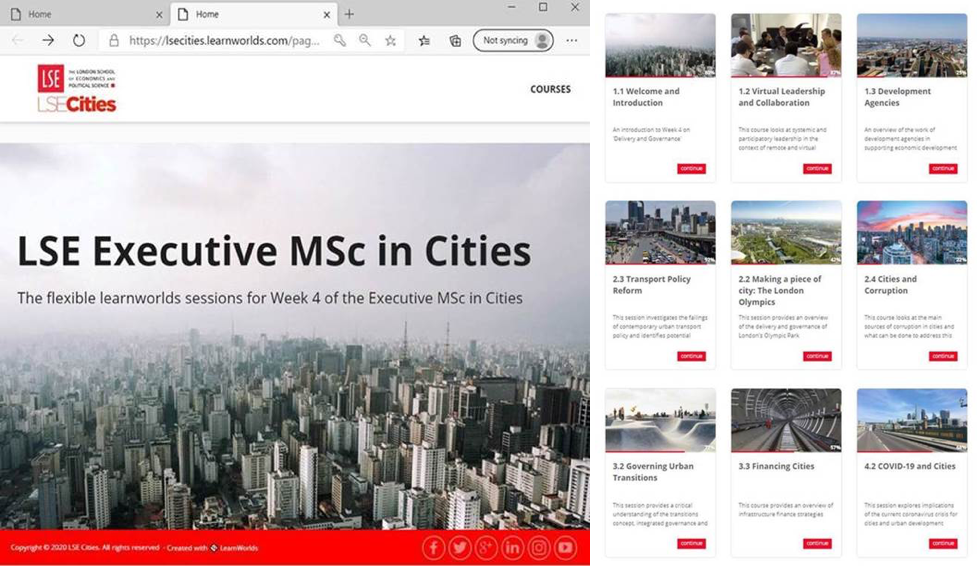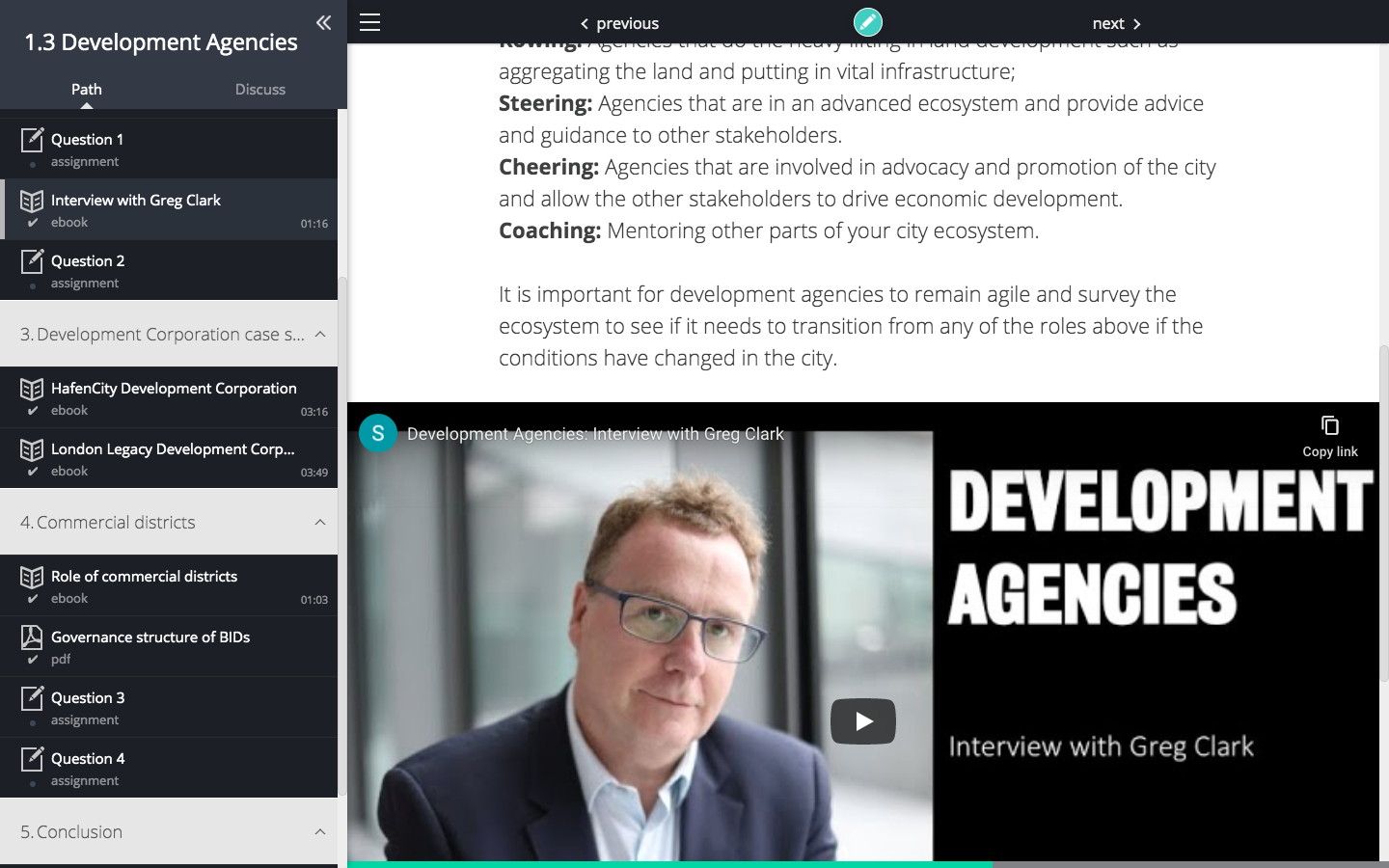
Since 2016, LSE Cities has been running an Executive MSc in Cities (EMC), which includes five residency weeks in London as part of an 18-month part-time degree. During these on-campus modules, around 24 urban leaders from public, private and third sector organisations across the world take part in a packed week of in-person lectures, workshops, and other educational activities.
With one month’s notice, our April weeklong London module on urban transformation, governance, and delivery had to be either postponed or entirely re-designed as a virtual learning experience. This decision turned out to be straightforward. On one hand, postponing the week was full of uncertainties and re-scheduling was complicated. On the other, we had nothing to lose to test a completely new virtual approach, building on several years of blended learning experience as part of our Sociology/Cities Programme postgraduate course ‘City Making: the Politics of Urban Form’.
But how would our participants respond to something to which they had never signed up? We consulted with the current cohort, and many preferred postponing or even deferring to avoid online education. In the run-up to the April week, we stressed that we were not planning to offer a format inferior to in-person education and would include virtual engagement with London sites and opportunities to socialise. We also offered participants the choice to defer at the end of the week if they did not find the virtual format delivered what they anticipated.
With the exception of two participants centrally involved in the current emergency response, ultimately all were on board. Signing up faculty and guest speakers was much easier as there was a considerable degree of curiosity and excitement. By contrast, time zone constraints posed a major challenge. In the end, we ran two live session tracks, one for our participants located between Australia and the Middle East and another for those in Europe, Africa, and the Americas.

We divided our typical 1 hour and 45 minute in-person sessions into two blended learning components: a pre-curated component for independent, individual participation hosted on the digital platform LearnWorlds and a live follow-up Zoom session structured around some of the content collected from each of our participants via the upfront flexible sessions. Our digital platform allowed us to flexibly curate our online content and students to progress through the course journey by clicking the next page at their own pace.

The week’s dozen sessions featured LSE faculty alongside guests including the Deputy Mayor of Paris, the Head of Planning for the City of Tirana, and representatives from the World Bank Cities team. We revealed the pre-prepared sessions on a daily basis. They included short lecture videos mixing slides and lecturers talking to the camera, recorded Zoom interviews with experts, short embedded readings and infographics, third party video clips, Sound Cloud podcasts, and key takeaways from each session. We incorporated active student engagement via short text submissions and frequent surveys, which then helped us structure our live Zoom sessions.
Follow-up live Zoom sessions allowed our students to apply their individual learning to workshop-based sessions and collaboration, facilitated by Mentimeter for quick surveys and feedback, CoDigital for group-based ideas generation and prioritisation, and Mural for online visual collaboration. Throughout, we made full use of Zoom’s breakout room functionality. At the end of each 45-minute session, we included 15 minutes of informal social time with faculty, facilitators, and guests.

There were various challenges. Broadband connectivity was not always perfect, some of us had to share space with family members, and noisy construction activities provided a background soundtrack. We relied on our amateur skills for recording and editing videos, as well as coding some elements of the digital platform.
But these difficulties were minor compared to an extremely positive experience overall. Our feedback survey of participants found that the vast majority considered the virtual teaching week ‘excellent’ and were equally positive about the pre-prepared and live sessions. Although the Zoom sessions may not have provided the same experience as in-person teaching, participants felt that the smaller time-zone groups meant more interaction with faculty and richer discussions. Not one student requested a deferral.
The main area for improvement will be to focus on more initial training on the use of digital collaboration platforms to enable better engagement in virtual group work. We also plan to expand our typical in-person five-day week to a period of three weeks to allow for more preparation time for each session. In addition, we will be able to deliver sessions during ‘global teaching hours’ (12.00 to 15.00 London time), reducing the need for two time zone tracks. We will apply this approach for the forthcoming edition of the Executive Education Short Course ‘Cities: Governance, Planning and Design’ in June.
Irrespective of whether future live sessions are conducted in-person at LSE or via Zoom, we plan to transition to blended learning formats. The advantages of more flexible student engagement, customisable modular pre-prepared content, and live sessions informed by ongoing feedback were clear among participants and faculty.
There is another issue worth noting: carbon footprint. During their previous week in London, EMC participants engaged in a policy challenge to address the global climate emergency, facilitated by the C40 Cities Climate Leadership Group. Many emergency actions focussed on behaviour change, prompting us to critically evaluate the carbon footprint of flying international participants to London for five residency weeks. Virtualising our April week saved the climate equivalent of roughly 100 tonnes of CO2.
In sum, the virtual teaching week of the Executive MSc in Cities, run by LSE Cities in April 2020, clearly felt like a turning point in our approaches to graduate and executive education. We look forward to learning more about the experiences of our colleagues and to jointly advancing a new learning experience offered by the LSE.